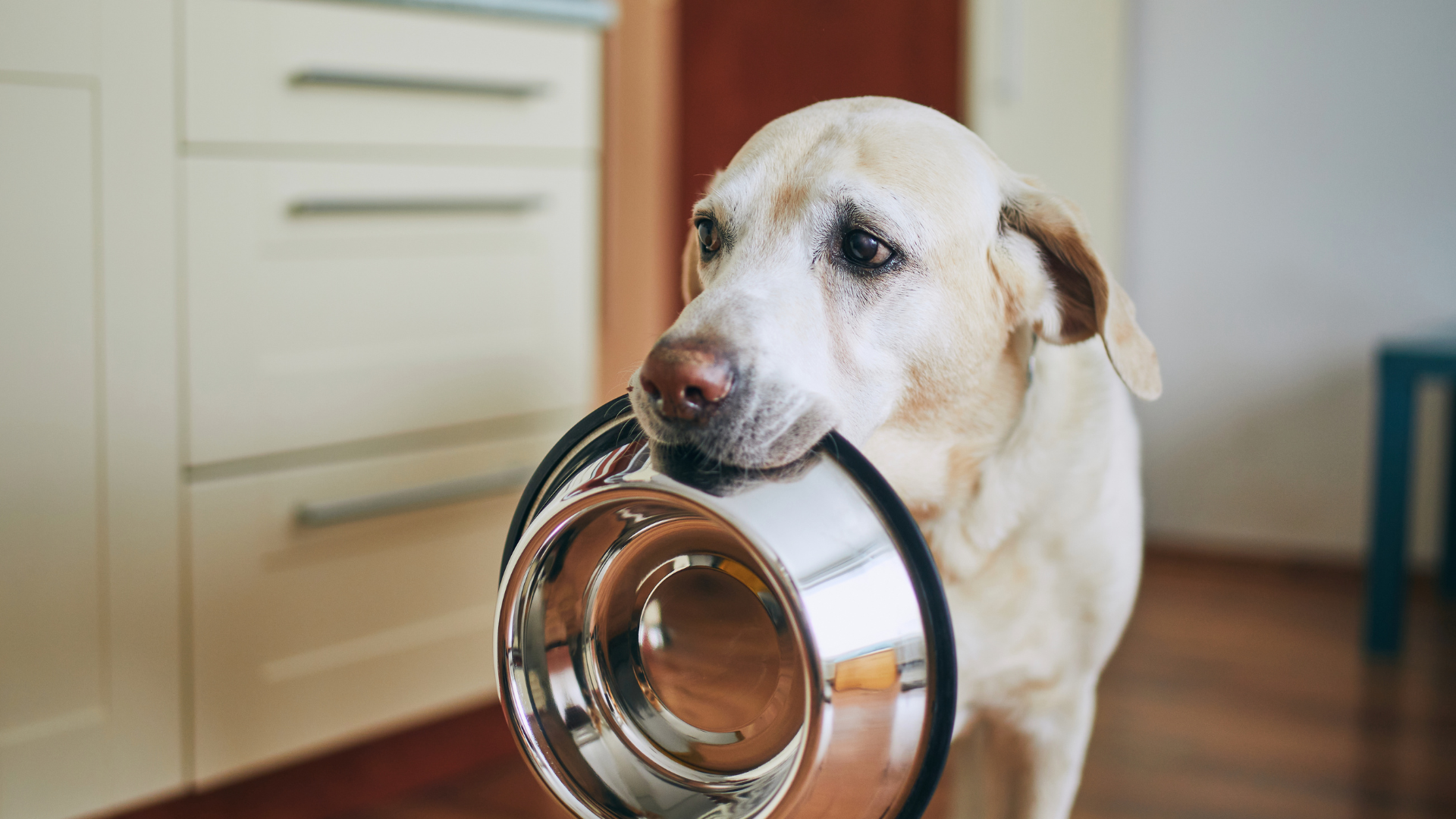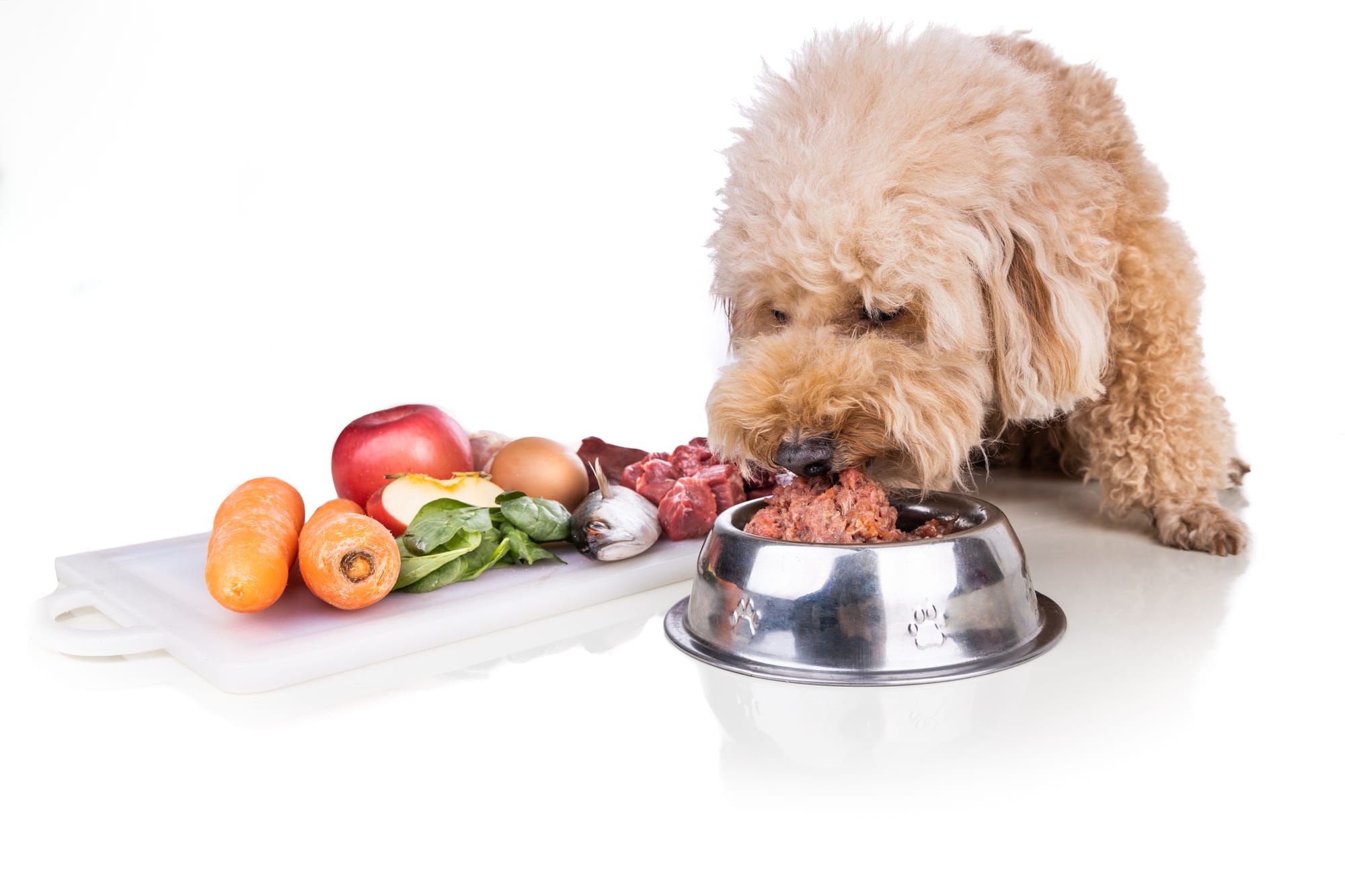Gassy dogs can be a real problem for pet owners. Not only can it be unpleasant to be around a dog with excessive gas, but it can also be a sign of digestive issues or other health problems. Fortunately, there are steps that pet owners can take to reduce the amount of gas their dogs produce, including feeding them the right types of food.

When it comes to selecting the best foods for gassy dogs, it's important to consider a few key factors. First and foremost, the food should be easy to digest and gentle on the stomach. This means avoiding ingredients that are known to cause digestive issues, such as grains or dairy. Additionally, the food should be high in fiber, which can help regulate digestion and reduce gas.
Some of the best dog foods for gassy dogs include those that are made with high-quality protein sources, such as chicken, turkey, or fish. These foods are typically easier to digest than those made with lower-quality proteins, such as by-products or fillers. Additionally, foods that are formulated with probiotics or digestive enzymes can help promote healthy digestion and reduce the amount of gas produced by the dog.

Understanding Canine Digestion
Dogs are known to have a sensitive digestive system, and it is not uncommon for them to experience digestive issues such as gas. Understanding the digestive system of dogs is crucial in identifying the causes of gas and taking the necessary steps to alleviate the problem.
Common Causes of Gas in Dogs
There are several common causes of gas in dogs, including diet, food sensitivities, allergies, and digestive issues. Dogs that eat too quickly or consume large amounts of food at once are more likely to experience gas. Additionally, dogs that eat a diet that is high in fiber or fat may also experience gas.
The Impact of Diet on Digestive Health
The diet of a dog plays a significant role in their digestive health. A diet that is high in fiber and low in fat can help prevent gas and other digestive issues. Additionally, feeding a dog smaller, more frequent meals can also help prevent gas.
Signs of Food Sensitivities and Allergies
Food sensitivities and allergies can also cause gas in dogs. Some common signs of food sensitivities and allergies include vomiting, diarrhea, and skin irritation. If a dog is experiencing these symptoms, it is important to consult a veterinarian to determine the cause and take the necessary steps to alleviate the problem.
In conclusion, understanding the digestive system of dogs and the common causes of gas is crucial in identifying and preventing digestive issues. By feeding a dog a healthy diet and monitoring their symptoms, pet owners can help their furry friends live a happy and healthy life.

Key Nutritional Components
Dogs are known to have a sensitive digestive system, which can lead to excessive gas production. Feeding them the right foods with the key nutritional components can help reduce the amount of gas they produce. Here are some of the essential components to consider when choosing foods for gassy dogs.
The Role of Protein in Canine Diets
Protein is a critical component of a dog's diet, and it plays a significant role in muscle growth and repair. However, some proteins can be hard to digest, leading to excessive gas production. When choosing protein sources for gassy dogs, it's essential to opt for high-quality proteins that are easy to digest, such as chicken, fish, and lamb.
Importance of Carbohydrates and Fiber
Carbohydrates and fiber are essential components of a dog's diet that help maintain digestive health. However, some carbohydrates can be challenging to digest and can lead to excessive gas production. Opt for high-quality carbohydrate sources such as sweet potatoes, brown rice, and oatmeal, which are easy to digest and provide the necessary fiber for optimal digestive health.
Vitamins and Minerals for Optimal Health
Vitamins and minerals are crucial components of a dog's diet that help support overall health and well-being. However, some vitamins and minerals can be challenging to digest and can lead to excessive gas production. Opt for high-quality vitamin and mineral sources such as leafy greens, carrots, and blueberries, which are easy to digest and provide the necessary nutrients for optimal health.
In conclusion, choosing the right foods with the key nutritional components can help reduce gas production in gassy dogs. Opting for high-quality proteins, carbohydrates, fiber, vitamins, and minerals can help maintain optimal digestive health and support overall well-being.
Selecting the Best Dog Food for Gassy Dogs
Dogs are known to be gassy creatures, but excessive flatulence can be a sign of digestive issues. If your dog is experiencing excessive gas, it may be time to reassess their diet. Here are some key factors to consider when selecting the best dog food for gassy dogs.
Identifying High-Quality Ingredients
The quality of ingredients used in your dog's food can have a significant impact on their digestive health. Look for dog food that contains high-quality ingredients such as real meat, vegetables, and fruits. Avoid dog food that contains fillers, by-products, artificial colors, and preservatives. These ingredients can be difficult for your dog to digest and can cause excessive gas.

Grain-Free vs. Whole Grain Diets
Grain-free diets have become increasingly popular in recent years as they are believed to be easier for dogs to digest. However, it's important to note that not all dogs require a grain-free diet. Dogs that have a grain allergy or intolerance may benefit from a grain-free diet, but dogs that can tolerate grains can still benefit from a diet that contains whole grains such as brown rice and oats. Whole grains are a good source of fiber and can aid in digestion.
The Benefits of Limited Ingredient Diets
Limited ingredient diets are designed to minimize the number of ingredients in your dog's food. This can be beneficial for dogs that have a sensitive stomach or food allergies. Limited ingredient diets typically contain a single source of protein and a few other ingredients. This can make it easier to identify any ingredients that your dog may be sensitive to and can help to reduce excessive gas.
When selecting the best dog food for gassy dogs, it's important to consider the quality of ingredients, the type of diet, and any specific dietary needs your dog may have. By choosing a high-quality, easily digestible dog food, you can help to reduce excessive gas and promote better digestive health for your furry friend.
Recommended Foods and Ingredients
When it comes to feeding gassy dogs, certain foods and ingredients can help promote better digestive health and reduce flatulence. Here are some recommended options to consider:
Probiotics and Prebiotics for Gut Health
Probiotics are live bacteria that can help balance the gut microbiome and improve digestion. Prebiotics, on the other hand, are types of fiber that feed the good bacteria in the gut. Together, these two ingredients can help promote better gut health and reduce gas.
Look for dog foods that contain probiotics like Lactobacillus acidophilus or Bifidobacterium animalis. You can also add a probiotic supplement to your dog's diet. Some natural sources of prebiotics include chicory root, sweet potatoes, and peas.
Natural Sources of Fiber
Fiber is an important nutrient for dogs, as it can help regulate digestion and promote bowel regularity. Natural sources of fiber like sweet potatoes, peas, and pumpkin can be a great addition to your dog's diet. Just be sure to introduce these foods slowly and in small amounts to avoid digestive upset.
Foods to Avoid for Gassy Dogs
Some foods can actually make gas worse in dogs. For example, corn, wheat, and soy are common allergens that can cause digestive issues and flatulence. Dairy products like cheese and milk can also be problematic for some dogs.
When choosing a dog food, look for options that are free from these ingredients. Additionally, avoid giving your dog table scraps or human food that is high in fat or difficult to digest.
By incorporating these recommended foods and ingredients into your dog's diet, you can help promote better digestive health and reduce flatulence.

Feeding Practices to Prevent Gas
Gassy dogs can be uncomfortable and unpleasant to be around. Fortunately, there are simple feeding practices that can help prevent gas in dogs.
Proper Portion Sizes and Meal Timing
One of the most important factors in preventing gas in dogs is proper portion sizes and meal timing. Overfeeding can lead to digestive issues, including gas. It's important to follow the recommended portion sizes for your dog's breed, size, and activity level.
In addition to proper portion sizes, meal timing is also crucial. Dogs should be fed at regular intervals throughout the day to prevent overeating and promote healthy digestion. It's recommended to feed adult dogs twice a day, while puppies may require more frequent meals.
The Importance of Consistent Feeding Routines
Consistency is key when it comes to feeding routines for dogs. Dogs thrive on routine and can become stressed or anxious when there are changes in their feeding schedule.
It's important to establish a consistent feeding routine for your dog and stick to it as much as possible. This includes feeding at the same times each day and in the same location. Consistent feeding routines can help prevent overeating and promote healthy digestion, which can ultimately reduce gas in dogs.
By following these feeding practices, dog owners can help prevent gas in their furry friends and promote overall digestive health.
When to Consult a Veterinarian
While most cases of gas in dogs can be resolved with dietary modifications and over-the-counter remedies, there are times when consulting a veterinarian is necessary. Here are some situations where it's best to seek professional advice:
Chronic Digestive Issues and Interventions
If your dog's flatulence is persistent and accompanied by other symptoms like diarrhea, vomiting, or weight loss, it may be a sign of an underlying digestive issue. Conditions like food intolerance or inflammatory bowel disease can cause excessive gas and require medical intervention. In such cases, a veterinarian may recommend diagnostic tests like blood work, fecal analysis, or endoscopy to determine the root cause of the problem.
Professional Dietary Recommendations
If your dog's flatulence is not responding to home remedies or dietary changes, it's best to consult a veterinarian for professional dietary recommendations. A veterinarian can help determine the best diet for your dog's specific needs, taking into account factors like age, breed, activity level, and any underlying medical conditions. They may recommend a prescription diet or a specialized food that is designed to reduce flatulence and improve digestion.
Conclusion

In conclusion, while occasional gas in dogs is normal, excessive flatulence can be a sign of an underlying issue. If your dog's gas is persistent or accompanied by other symptoms, it's best to consult a veterinarian for proper diagnosis and treatment. With the right intervention, your furry friend can enjoy a happy and healthy life free from uncomfortable gas.
Frequently Asked Questions (FAQs)
- What is the recommended diet for dogs with excessive flatulence?
- The recommended diet for dogs with excessive flatulence is one that is easily digestible and low in fermentable carbohydrates. This means that the food should contain high-quality proteins, healthy fats, and easily digestible carbohydrates. It is also recommended to feed smaller, more frequent meals to prevent overeating and promote better digestion.
- Which ingredients should be avoided in food for dogs prone to gas?
- Food ingredients that are known to cause gas in dogs should be avoided. These include soy, corn, wheat, and dairy products. Additionally, certain vegetables like broccoli, cauliflower, and cabbage can also cause gas in dogs. It is important to read the ingredient labels carefully and avoid any foods that contain these ingredients.
- How can a sensitive stomach in dogs affect their gassiness?
- Dogs with sensitive stomachs may be more prone to flatulence. This is because their digestive system is not able to properly break down certain foods, causing gas to build up in the intestines. Feeding a diet that is easily digestible and avoiding foods that are known to cause gas can help reduce flatulence in dogs with sensitive stomachs.
- Are there specific breeds that require special diets to reduce flatulence?
- Some breeds are known to be more prone to flatulence than others. Breeds with short snouts, such as Bulldogs and Pugs, may be more prone to gas due to their unique anatomy. These breeds may require special diets that are low in fermentable carbohydrates and high in easily digestible proteins to reduce flatulence.
- What homemade food options are beneficial for dogs with gas issues?
- Homemade dog food can be a great option for dogs with gas issues. Ingredients like lean meats, brown rice, sweet potatoes, and green beans can be used to create a balanced and easily digestible meal. It is important to consult with a veterinarian or canine nutritionist to ensure that the homemade food is nutritionally balanced for the dog's specific needs.
- Can certain proteins in dog food lead to increased gas in canines?
- Yes, certain proteins in dog food can lead to increased gas in canines. Proteins that are difficult to digest, such as soy and corn, can cause gas to build up in the intestines. Feeding a diet that contains easily digestible proteins, such as chicken, turkey, or fish, can help reduce flatulence in dogs.




